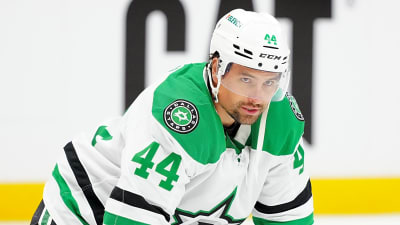
Why Gary Bettman's CTE denial is cause for concern for NHL
The quietest part of the NHL offseason was interrupted this week by Commissioner Gary Bettman and his take on the connection between head injuries in hockey and long-term brain damage. While his commentary isn’t all that surprising, it continues to keep a dark storm cloud hovering over the league.
In a 24-page letter — yes, 24 pages long — addressing questions from Senator Richard Blumenthal of Connecticut, Bettman maintained his stance that brain damage and hits to the head in hockey are not exclusively linked. Again, this isn’t the first time that Bettman has insinuated that the evidence is lacking to link head trauma in hockey to the disease chronic traumatic encephalopathy, or CTE. Nor is it the first time that he has tried to pin concern over brain disease on “media hype” in an effort to not let the profitability of the league go down.
However, his response is still troubling, what with the current lawsuit brought on by former NHLers and the rise of current players speaking up about concerns over their health.
It has become fairly well-known that dismissing a link between sports-related head injury and brain disease wasn’t a good move on the part of the NFL. Bettman’s refusal to admit to seeing a link in the NHL won’t go well either.
The commissioner’s continued insistence that there isn’t enough evidence to support a link between CTE and multiple checks to the skull is troubling, to say the least. CTE has reportedly been “diagnosed in at least six deceased N.H.L. players, along with roughly 100 former N.F.L. players,” the New York Times summarized. Add to that the 105 former players who are part of the class-action suit against the NHL and believe that the league withheld knowledge of a link with CTE and other brain trauma.
Apparently this still isn’t enough evidence for Bettman, stating in his lengthy letter to Senator Blumenthal that:
“The science regarding CTE, including the asserted ‘link’ to concussions that you reference, remains nascent, particularly with respect to what causes CTE and whether it can be diagnosed by specific clinical symptoms.”
His comments on the embryonic nature of said science is punctuated by the statement: “If that consensus changes, so, too, will my answers.”
Sure, studies of CTE are a bit new. But Bettman’s claims that there isn’t enough knowledge of the link between sports and related head injuries are countered by a later statement in his letter:
“It is particularly important not to suggest to current and/or former athletes that because of their professional sport participation, they may have a scientifically-established or diagnosable degenerative disease, which may only instill unwarranted fears that could result in potentially tragic consequences, including long-term depression and even suicide.”
This, as CBS Local in Boston pointed out, sounds like Bettman admitting that the league has at least some knowledge to link the two factors but is choosing to not tell players about it for fear of them not wanting to play. That not to mention that this backs up unsealed emails from 2011 in which higher-ups in the league discuss the risk of concussions from in-game fighting. And that, as Nathaniel Vinton of the New York Daily News pointed out, makes Bettman a danger to the players in the league.
That is not a good look for a league with a lawsuit on its hands.
Such a notion is made worse due to active NHLers becoming more vocal about their health. Back in April, defenseman Willie Mitchell spoke up about the league “not doing enough” to educate players about the long-term damage from head injuries. The Florida Panthers captain told SportNet that there is “a concern with players. Guys are worried about it. Guys talk about it — the league isn’t doing enough to protect the players…”
Mitchell added that suspensions for serious checks to the head have become more lenient.
Bettman concluded, though, that this concern is driven by the media coverage. He said in his lengthy adage:
“The N.H.L. chooses to be guided on this very serious subject by the medical consensus of experts examining the science, not the media hype driven in part by plaintiffs’ counsel.”
Surely the battle to make the game safer is an uphill battle, a “get worse before it gets better” kind of ordeal. And while Bettman’s commentary isn’t particularly surprising, it is still worrisome.
More must-reads:
- NHL Commissioner Gary Bettman denies link to C.T.E.
- AHL announces new rules on fighting that could come to the NHL
- The 'First-overall NHL Draft picks' quiz
Breaking News
Trending News
Customize Your Newsletter
 +
+
Get the latest news and rumors, customized to your favorite sports and teams. Emailed daily. Always free!








